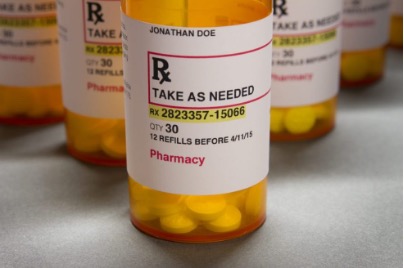Many medications; including vitamins, minerals and prescription medication can have a negative effect on your oral health. You should be aware of the side effects and the potential serious consequences.
In this column, we will discuss some common medications prescribed for medical ailments and the oral health side effects they can cause.
Anti-Blood Clotting Medications-
Examples of these include Heparin, Eloquis, Pradaxa, Coumadin, Plavix, Xarelto, etc
If you suffer from a heart or vascular disease, you may be prescribed one of these anticlotting medications. They are referred to as “blood thinners”. These medications prevent clots from forming in your blood vessels that can lead to a stroke or heart attack. When these ill-fated clots happen, little or no oxygen gets to a site causing death to tissues or an organ. Even regular aspirin or non- steroidal anti-inflammatory agents like Motrin or Advil can cause “thinning” of the blood.
While these drugs have proven benefits, the potential side effects are excessive bleeding. Dentists become very concerned when their patients use them. What makes matters worse is when the dentist is unaware. Some dental procedures, like a simple extraction can expose the hidden bleeding problem. If you are taking one or more of these medications, it takes longer for any type of bleeding to stop.
The most important thing you should do is to inform your dentist right away if you are taking any kind of anticoagulant or antiplatelet medication, especially if you have just started taking it. This information will be noted in your records and where necessary, contact made with your medical doctor or cardiologist.
A number of studies have shown that for many common dental procedures like cleanings, fillings and gum treatment, it’s safer to continue taking anticoagulant medications than to stop, even temporarily. This is because it is generally possible to control bleeding with local measures (such as biting down on gauze) or constant pressure. Scheduling dental work early in the day and allowing plenty of time for rest afterwards also gives us an opportunity to control any bleeding that does occur.
Anti-Osteoporosis Medications-
Examples of these include Fosomax, Actonel, Boniva, Reclast, etc
Osteoporosis is a common ailment, especially for women experiencing menopause. As a result, women are at increased risk of bone fracture. Biphosphonates are the most widely prescribed osteoporosis medications.
Although bisphosphonates have been proven beneficial, their chemical reaction tends to impair bone healing and remodeling. This can result in an increased risk of development of osteonecrosis of the jaws. Osteonecrosis is a side effect that result is death to areas of the jaw bone. This means the bone does not heal well after extractions, implants or dental infections. The opposite complication is also possible, ie- the medication can cause the bone to become too hard thereby affecting dental treatment, like dental implants.
Anti-Hypertensive Medications-
Examples of this group are Norvasc, Plendil, Adalat, Procardia, etc.
This group of antihypertensive medications are referred to as Calcium Channel Blockers. They work by dilating (widening) the blood vessels, which makes it easier for the heart to pump blood.
A serious side effect as it relates to oral health, is gum tissues may become swollen, thick and lumpy. This condition is called gingival hyperplasia, resulting in difficulty in cleaning deep pockets, bone loss and early loss of teeth. In many cases, laser gum treatment can cure and if the medication is changed there is almost immediate shrinkage of the gums.
Also, the overgrowth of gum tissue makes it difficult or impossible to clean the spaces between teeth. This can cause a rapid deterioration in oral hygiene that may lead to a serious case of gum disease if not treated promptly. Since poor oral hygiene itself is a contributing factor in gum overgrowth, the condition can easily deteriorate rapidly.
All prescription medications have side effects. The important question is to determine the benefits versus risks. As a practicing dentist my best advice to patients is to promptly inform your dentist of all the medications you are taking. This information is extremely helpful in implementing a course of treatment that is beneficial to your total health and wellness.
Dr. Kendal V. O. Major is Founder and CEO of Center for Specialized Dentistry which is a comprehensive family dental practice operating in Nassau and Freeport. He is the first Bahamian Specialist in gum diseases and dental implants since 1989. He also is a certified Fastbraces provider. His practice is located at 89 Collins Avenue, Nassau at (242)325-5165 or [email protected].

Prescription Meds have side-effects. You should know the risks

Continue your check-ups and inform your dentists of all Meds

Tell your dentist which pills you are taking





